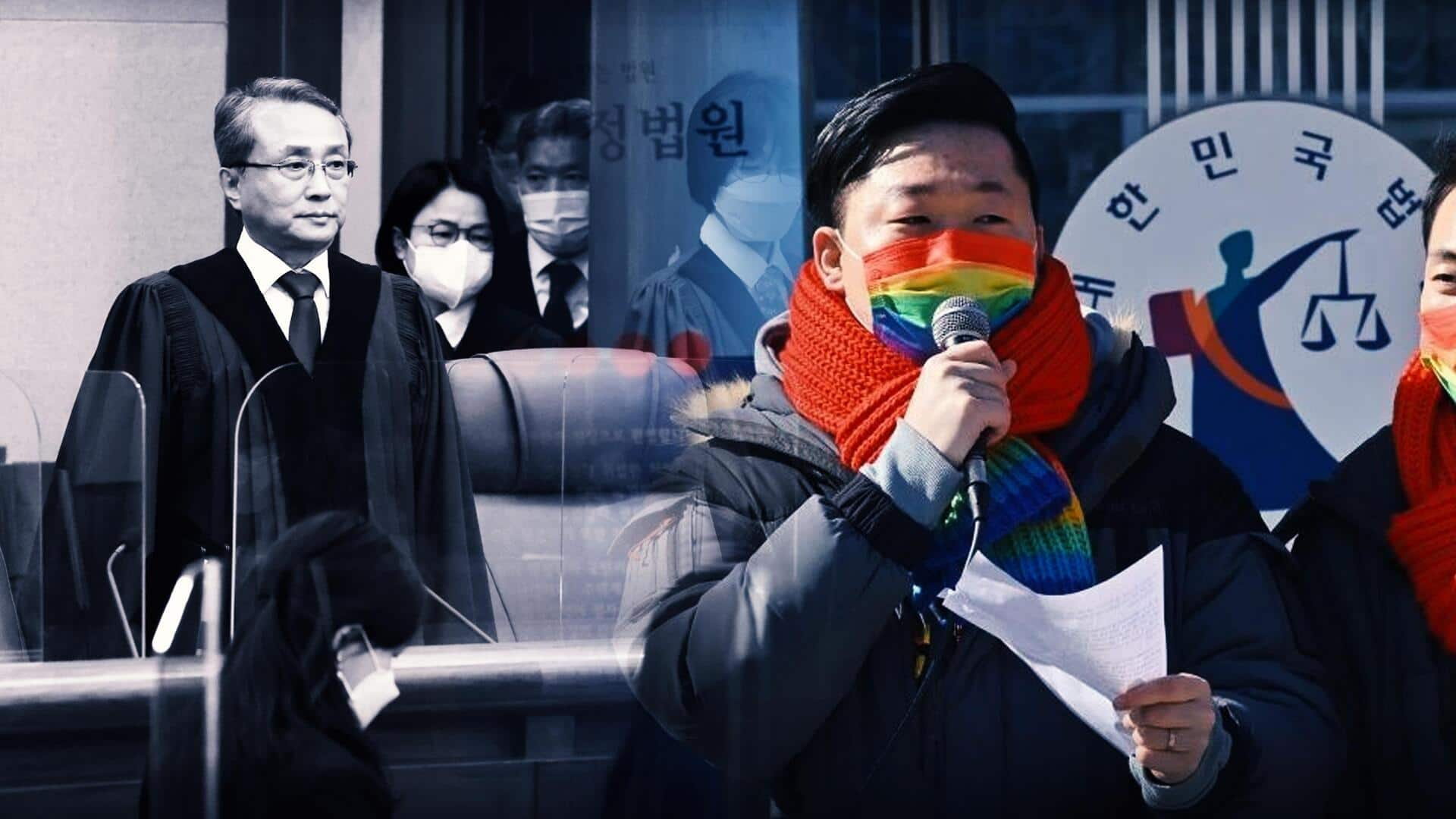
South Korea Supreme Court upholds same-sex spousal benefits
What's the story
In a historic verdict, South Korea's Supreme Court has ruled that same-sex couples are entitled to spousal benefits under the national health insurance program. This ruling permits same-sex common-law spouses to register as dependents on their partners' health insurance. The decision follows a Seoul High Court ruling last year in favor of So Sung-wook and Kim Yong-min, whose spousal benefits were previously cancelled by the National Health Insurance Service.
Emotional response
'Extremely happy...': Reaction after ruling
Kim Yong-min, one of the plaintiffs in the case, expressed his elation at the ruling. "I couldn't believe when I heard the ruling. I was extremely happy and I started crying," he said. Kim noted that it took four years to achieve this dependent status and stressed the need to continue fighting for legalizing same-sex marriage in South Korea. The couple had filed a lawsuit against the National Health Insurance Service in 2021 after their spousal benefits were revoked.
Court's stand
Chief Justice condemns discrimination in health coverage
Chief Justice Jo Hee-de condemned the denial of benefits to same-sex couples as discrimination based on sexual orientation. "It is an act of discrimination that violates human dignity and value, the right to pursue happiness, freedom of privacy and the right to equality before the law, and the degree of violation is serious," Jo said during a televised trial. The couple had held a wedding ceremony but their marriage is not legally recognized in South Korea.
Advocacy victory
Ruling hailed as progress toward marriage equality
The Supreme Court's decision has been celebrated as a "stepping stone for progress" toward marriage equality by activist Horim Yi at Marriage For All, an LGBTQIA+ campaign group. The couple had previously stated they were being open about their story to help "change people's opinions and help other LGBTQ people like us gather up courage." This ruling marks the first legal recognition of a same-sex union in South Korea, according to lawyers and advocates.
Mixed reactions
Resistance and praise surrounding the landmark ruling
Despite the ruling, conservative religious groups in South Korea have resisted efforts to pass laws against discrimination, leading many LGBTQIA+ people to conceal their identity in the workplace. Prior to the verdict, members of conservative Christian groups protested outside the court. However, Amnesty International lauded the decision as "a historic victory for equality and human rights in South Korea," stating that it represents a significant step toward dismantling systemic discrimination and ensuring inclusivity for all.
Population concerns
Ruling amid South Korea's demographic crisis
The ruling comes at a time when South Korea's fertility rate, already the world's lowest, continues to decline. The country's demographic crisis has become a top risk to economic growth and the social welfare system. In response, South Korea has spent billions of dollars trying to prevent its population from shrinking, as concerns about career advancement and the financial cost of raising children drive many South Korean women to delay childbirth or forgo having children altogether.